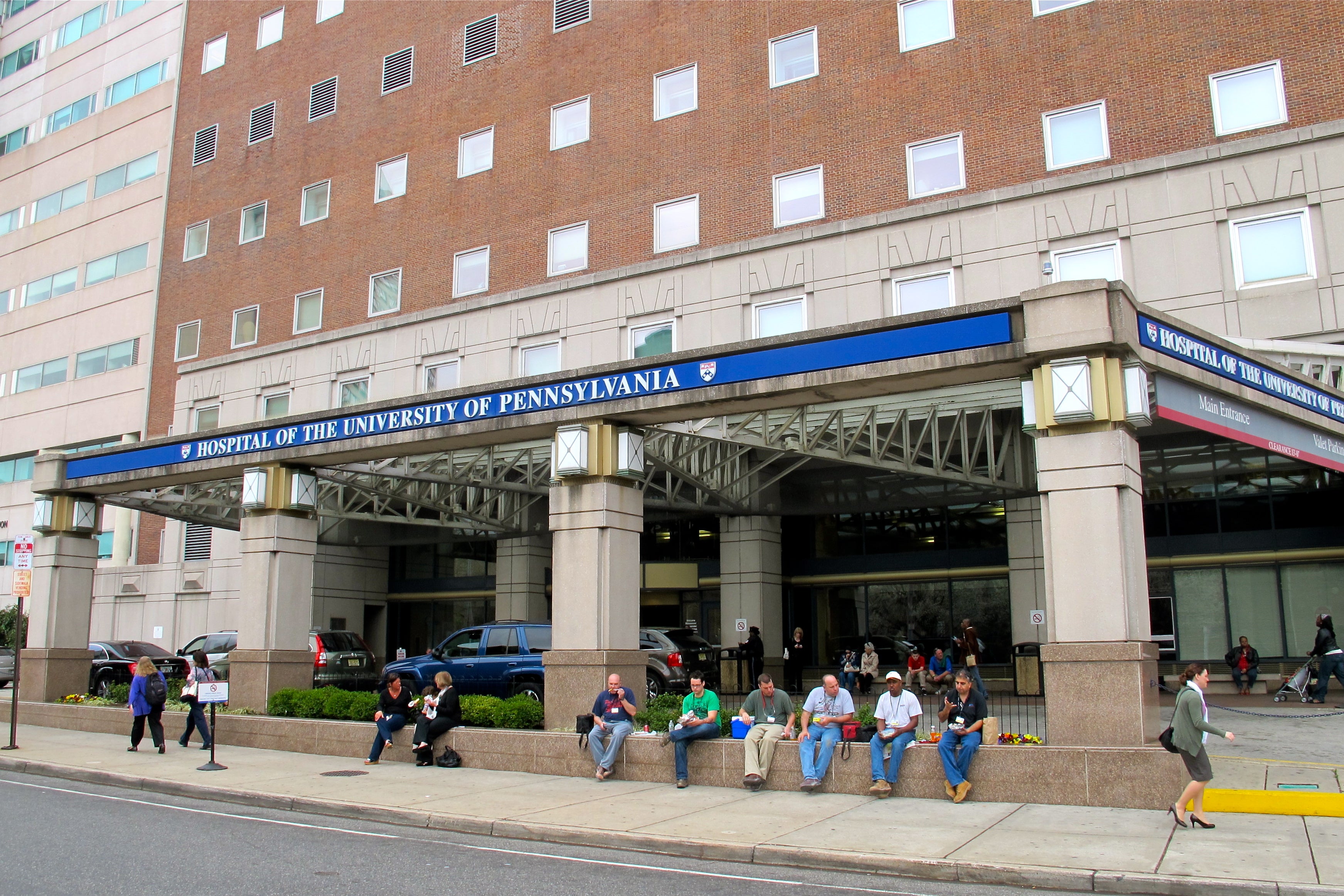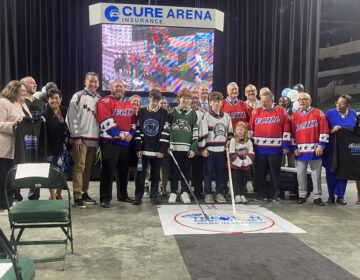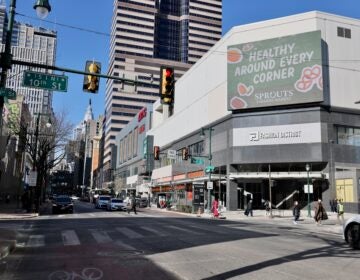Forget outsourcing, Philly ‘eds and meds’ connect with businesses inside the city

Philadelphia hospitals send tens of millions of pounds of dirty laundry across state lines every day for cleaning. But why not send the linen to a local launderer?
As part of an effort to encourage universities and hospitals to buy services from local businesses, the Economy League of Greater Philadelphia announced Wednesday the launch of Philadelphia Anchors for Growth & Equity, or PAGE. Founding partners — Penn, Drexel, Temple, CHOP, Penn Medicine, Temple Health, Jefferson and the city of Philadelphia’s department of commerce — have invested around $200,000 in the program. That money will go toward building a database of local businesses, providing technical assistance to those businesses and starting apprenticeship programs to help employ workers at growing companies.
“Millions of pounds of hospital laundry is shipped hundreds of miles every day,” said Jeff Hornstein, executive director of the Economy League.
Through PAGE, Hornstein approached numerous laundry businesses until he found a few to bid for a position to build a facility as Penn’s new local laundromat. Hornstein’s hope is that this will create jobs, grow the local company, and reduce costs for the hospital.
“A small local business that wants to get into the supply chain and needs help or access to capital or other sorts of help can get it,” said Hornstein. “If this laundry opens up, and it can’t find qualified employees, it’s going to fail. So we want to set up apprenticeship programs and employer-driven training programs.”
The program will also create a Yelp-like database of Philly-based companies, so large institutions can more easily locate local firms and keep jobs in the city. The database will also serve as a bridge for smaller businesses to work their way into a larger market, Hornstein hopes.
Already, he’s asked institutions where they’ve had success with local supply chain, so the institutions know where to go when they need help. He offered a hypothetical catering company as an example.
“All right, CHOP, what local business have you done business with and had a good experience with? We’re putting it in a format that’s searchable,” said Hornstein. “CHOP might have a catering company that Einstein doesn’t know exists, and they’ve been looking for a catering company and now they’ve got a recommendation from CHOP.”
The impetus for the project came out of a finding buried in a 2015 City Controller report: Only half of the $5.3 billion spent collectively per year by the city’s 34 universities and hospitals on goods and services goes to local companies.
If the big guys and little guys work together, Hornstein said, they can both succeed with an “enlightened self-interest.”
“The trick is getting them to work together,” he said. “We want to create a culture of collaboration.”
Mariya Khandros, director of shared solutions at the Economy League, said PAGE emulates Penn’s engagement with West Philly in the past 20 years.
“Penn pioneered the idea of anchors investing in the community, to move anchors beyond seeing themselves as strictly in the business of educating students, while building a moat between the institution and the community,” said Khandros.
The model for PAGE came out of Chicago’s similar CASE program, which also works with public bodies, including Chicago’s public school district and transit system. Hornstein said, however, the Philadelphia groups wants to move much more slowly than Chicago did at their launch.
“We learned from studying other cities, like Chicago, that if you make the cost of entry too high, A, you’re going to exclude a lot of people, and, B, you’re going to have very high expectations,” said Hornstein. “Our barrier to entry is pretty low.”
Hornstein said that, within a year, he’d like to see the program double its size, But, like many Philly businesses, he’s starting small.
“We are trying to do this on a very bootstrap mentality,” he said.
WHYY is your source for fact-based, in-depth journalism and information. As a nonprofit organization, we rely on financial support from readers like you. Please give today.






